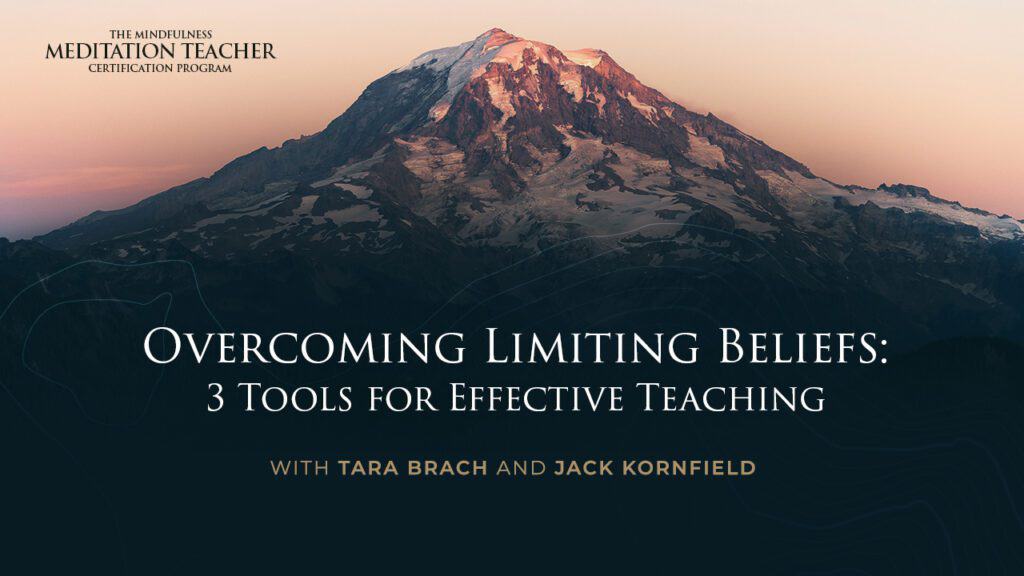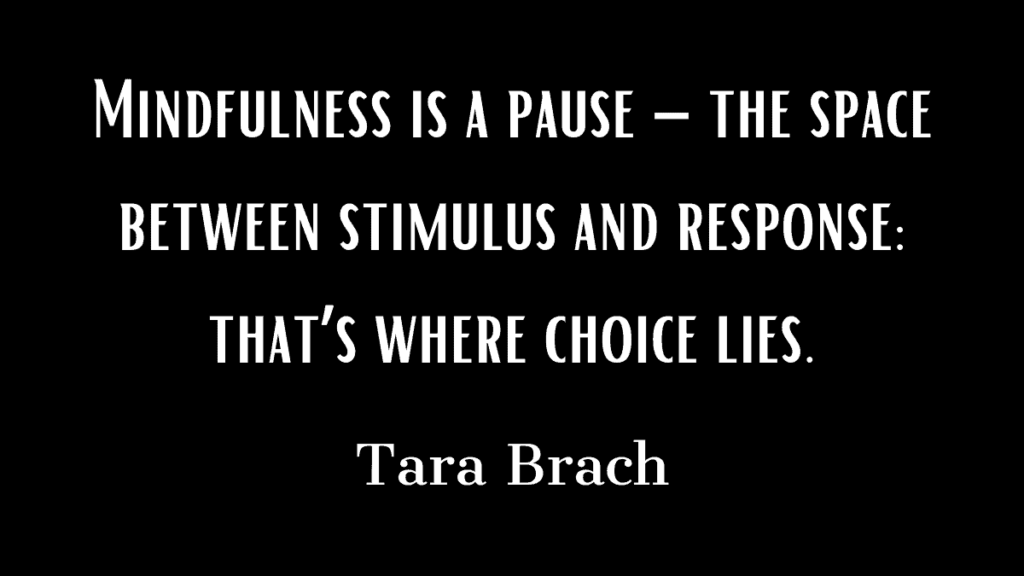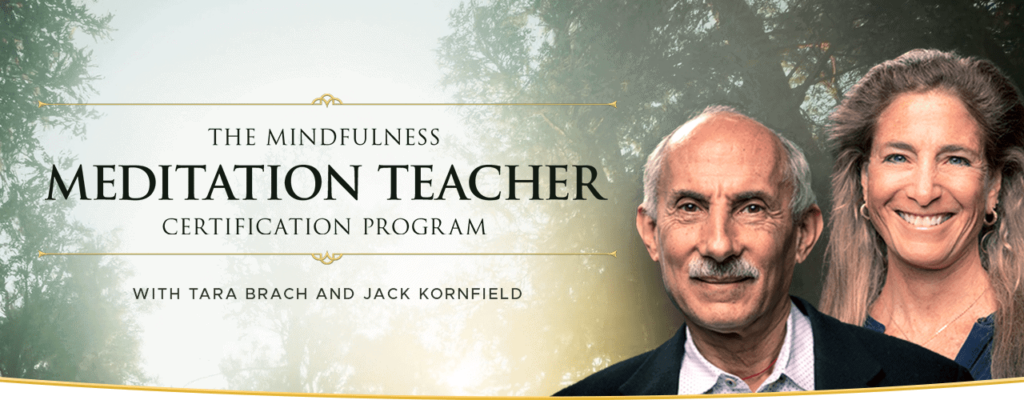Finding inner peace and living more mindfully has become a sought-after goal for many. With increasingly busy and stressful lives, people are turning to mindfulness as an antidote.
If you’re captivated by the power of mindfulness yourself and are interested in teaching others, becoming a certified mindfulness meditation teacher allows you to turn your passion into a fulfilling and meaningful career.
Mindfulness coaching has seen immense growth in recent years as more people and organizations recognize its benefits for both mental health and performance. As a certified coach, you can help individuals develop life-changing mindfulness practices while creating work that aligns with your values—a truly rewarding path for making an impact.
This article will explore what’s involved in gaining the necessary training and credentials to become a professional mindfulness coach capable of guiding clients to live with greater presence, purpose, and peace of mind.
Immerse Yourself in the Fundamentals
Before guiding others in mindfulness, you must fully embody these practices yourself. By actively participating in mindfulness and meditation training, you’ll cultivate first-hand experience with techniques to calm the mind, increase awareness, and tap into wisdom.
Seek out in-person group classes or online courses to build a strong personal practice. Local meditation centers, yoga studios, community colleges, and mindfulness organizations offer a wide range of options to fit different schedules and budgets.
Experiment with diverse methods during this exploration phase – try meditation essentials like focusing on the breath, body scans for deeper mindfulness, or visualizations that tap into empathy. Attend retreats digging deeper into mindfulness theories if possible.
Beyond formal meditation, learn to integrate mindful moments into everyday activities. Resources abound online and in books, but having an experienced teacher observe your practice and provide feedback can profoundly accelerate your progress.
Invest this time to transform your relationship with mindfulness before sharing these insights with clients.

Obtain Certification in Mindfulness
Once you have a regular mindfulness practice, the next vital step is getting certified as a professional mindfulness coach. There are many programs ranging from a few months to over a year focused specifically on mindfulness coaching.
Instead of a loose collection of courses, seek an integrated curriculum that skillfully combines understanding of mindfulness with the tools to coach others.
An immersive training process with instructor interactions and observed coaching practice sessions ensures you’ll skillfully guide clients on their mindfulness journeys after graduation.
Treat certification as an investment into launching a rewarding coaching career meaningfully impacting lives for years to come.
Leverage Relevant Backgrounds
While mindfulness coach certification provides specialized training, having a background in a complementary field like counseling fortifies your skillset.
Mental health fields like psychology and social work help you understand behavior change, motivating clients, addressing stuck points gently but effectively. Life coach training strengthens abilities like achieving goals and accountability. Weave these into a rich, nuanced mindfulness coaching approach.
Rather than investing in another degree, complement your certification with shorter professional development courses focused specifically on what your coaching niche needs.
For corporate mindfulness coaching, learn basics of organizational behavior and leadership styles – or if you’ll coach students add developmental milestones, common issues like exam stress and self-esteem.
Identify and address everyday challenges your clients face with mindfulness. A strategic blend of training and experience allows you to stand out as a mindfulness coach getting results.

Walk Your Talk Through Ongoing Practice
Though extensive initial mindfulness training is essential, you must sustain a consistent personal practice over time to embody what you teach. Set aside formal time for meditation each day, even starting with just 5-10 minutes.
Experiment with different techniques from focusing on the breath to open awareness or metta meditation. Download apps with guided meditations in various lengths and styles to prevent boredom. Over time incrementally increase session duration to an hour fitting your schedule.
Cultivate informal mindfulness while going about mundane activities. Washing dishes, walking the dog or waiting in line all offer chances to tune into bodily sensations, thoughts, and emotions with curiosity rather than judgement.
Record reflections afterward to integrate insights into coaching. Maintaining personal mindfulness makes your teaching authentic and impactful. Clients notice when coaches embody the material through their peaceful yet focused presence. Dedicate yourself to lifelong mindfulness practice.
Gain Hands-On Coaching Experience
While understanding mindfulness yourself is crucial, cultivating the skills to guide others requires direct coaching opportunities.
Shadowing allows you to observe experienced teachers firsthand – note their demeanor, language, ability to personalize sessions and handle challenges. Then progress to assisting leading parts of practice sessions yourself with oversight.
Local meditation centers often welcome volunteer coaches. Also consider pro bono coaching for friends to fine tune your ability to explain concepts clearly, sequence guided meditations effectively and offer tools fitting individual needs.
Coaching others combines science and art best learned through extensive direct experience. Embrace each mentoring interaction, self-reflect afterward on what worked well and areas needing refinement to steadily sharpen your coaching abilities.
These real world teaching moments prepare you to positively impact lives.

Discover Your Coaching Niche
Rather than a generic coach, deliberately focus your training and marketing toward a specific audience needing mindfulness support.
Groups, busy professionals, students facing exam anxiety – each has tailored challenges mindfulness addresses. If drawn toward corporate settings, develop business acumen.
For struggling teens, understand adolescent psychology. Narrowing your niche allows you to offer deeply relevant solutions through a mindful lens, setting you apart from competition.
What’s more, assess if you will coach virtually or locally, individuals or teams. Online coaching expands your reach globally but lacks in-person relationship building.
Onsite intensive retreats foster immersive experiences yet limit flexibility. There are also hybrid models balancing accessibility with meaningful connections. Reflect on what environments and formats best suit your communication style and schedule.
By proactively aligning offerings around what most energizes you with populations you feel called to serve, mindfulness coaching flows seamlessly rather than simply being transactional engagements.
Let your niche emerge organically from self-knowledge.
Build Your Coaching Business
Beyond skills to effectively guide clients, creating a thriving mindfulness coaching practice requires sharp entrepreneurial abilities. Clarify your personal definition of success – is it mostly about helping others thrive or a larger client roster and income? Answer this before tackling logistics.
Start by creating an online presence that communicates your niche, credentials and approach. Choose an intuitive website domain and design that quickly engages visitors. Showcase client testimonials and any unique offerings like corporate packages or specializations. Offer free resources demonstrating your expertise like blogs, videos, podcast interviews or webinars.
Determine your coaching fees based on rates supporting the lifestyle you desire while being fair and competitive. Consider options like discounted group sessions, custom organizational programs allowing higher charges per client, or hybrid mixed public/private pricing.
Payment plans or pro bono hours can improve access for some. Promote your services through social media, local partnerships like yoga studios, paid channels if budget allows and existing professional networks.

Uphold Mindfulness Coaching Principles
Becoming a mindfulness coach offers the opportunity to make a profound impact on people’s lives. However, with this responsibility comes the need to adhere to ethical guidelines and uphold professional standards. Here’s a brief overview of key principles to guide your journey:
Client Confidentiality: As a coach, you are privy to clients’ personal experiences and challenges. Maintaining strict confidentiality is paramount. This means keeping sessions private, not disclosing client information without consent, and securing data responsibly.
Informed Consent and Boundaries: Clearly explain your services, limitations, and fees upfront. Obtain informed consent for coaching, respecting clients’ right to choose and autonomy within the process. Set healthy boundaries regarding personal relationships, dual roles, and avoid giving advice beyond your scope of practice.
Competence and Continuous Learning: Commit to ongoing training and development in mindfulness practices and coaching skills. Stay updated on relevant research and evidence-based practices. Be honest about your qualifications and limitations, seeking supervision or referrals when needed.
Cultural Sensitivity and Diversity: Respect and acknowledge the diverse backgrounds, values, and beliefs of your clients. Adapt your coaching approach to be culturally sensitive and avoid making assumptions based on stereotypes.
Scope of Practice and Referrals: Understand the boundaries of your practice and recognize when clients require additional support from mental health professionals, medical practitioners, or other specialists. Make appropriate referrals promptly when necessary.
Marketing and Advertising: Promote your services honestly and ethically, avoiding exaggerated claims or promises. Focus on the potential benefits of mindfulness coaching while respecting client autonomy and avoiding pressure tactics.
Self-Care and Well-being: As a coach, taking care of your own mental and emotional well-being is crucial. Engage in regular mindfulness practices, maintain healthy coping mechanisms, and seek support from colleagues or supervisors when needed.
Remember, ethical practice is not a static requirement, but an ongoing journey of self-reflection and professional growth. By upholding these principles, you can contribute to building trust, fostering responsible coaching practices, and making a positive impact on the lives of others through mindfulness.

Final Thoughts
Becoming a certified mindfulness coach allows you to blend a personal passion for mindfulness with a rewarding career positively impacting others.
By taking the time to deeply immerse yourself in these transformative practices, obtaining recognized training, ongoing learning, deliberate niche focus and ethical grounding covered here, you will be well prepared to guide clients to greater self-awareness, resilience, and peace of mind.
While the path requires dedication, the ability to facilitate lasting positive change through mindfulness coaching is incredibly fulfilling. Lean into the initial uncertainty and investment needed to build expertise.
Before long you can evolve from student to teacher, walking others through the insights and universal wisdom hidden in plain sight within us all.
Mindfulness Meditation Teacher Certification Program
There are countless domains of great pain and trauma on this planet that need our compassionate attention. In these times of global crises, many of us feel called to act on behalf of those who are suffering and create a future that respects the dignity and sacredness of all life.
The Mindfulness Meditation Teacher Certification Program (MMTCP), is an extraordinary training created by Tara Brach with Jack Kornfield to meet the growing need for mindfulness and compassion teachers in our hurting and precious world.
This two-year online program provides comprehensive training and practicum experience to apply the life-changing tools of mindfulness meditation in a variety of public, professional, organizational and therapeutic settings.
Join thousands of dedicated teachers who are inspiring transformative shifts and leading the way to a more compassionate society.
Apply today to become part of an international movement of people dedicated to deepening their own spiritual awakening and bringing practices of mindfulness and heartfulness to communities around the globe.

"You might think that wanting to be “noble” sounds egoic and that aspiring to be like a bodhisattva sounds like being all puffed up with the identity of being a generous do-gooder. And of course, people could use the term in such a self-serving way.
But that is not how I think of it. In my experience, the most noble bodhisattvas (and the best meditation teachers) are people who feel the most empty, almost like they are transparent and you can see through them. They appear to me like totally open “human vehicles” who receive operating instructions about generating more love in the world, and then they follow those instructions, even when doing so can be extremely uncomfortable and demanding.
There are many ways to be a bodhisattva in the world today. In my opinion, one of the best foundational steps is to train in becoming a mindfulness meditation teacher. The training enables you to establish a type of inner stability and openheartedness, which is what we need to be skillful and effective, particularly at this time when there is an acceleration of collective chaos.
You can then bring your meditation teacher training into whatever arena best suits your talents and life situation—to your work as an educator, therapist, businessperson, yoga teacher, parent, helping professional, or whatever expression of bodhisattva activity calls you. As one friend once said to me, “What matters is the person, not the way.”
If you feel called to become trained as a mindfulness meditation teacher, I wholeheartedly encourage you to apply to join the upcoming cohort of The Mindfulness Meditation Teacher Certification Program. Upon graduation, you receive a certification of completion from the Greater Good Science Center at UC Berkeley.
And most importantly, you commit to a time-tested path of training that enables you to embody your deepest and most noble aspirations, becoming part of a wisdom stream that is dearly needed." Tami Simon
Frequently Asked Questions
Do I need a certification to become a mindfulness meditation teacher?
While certifications demonstrate your commitment and knowledge, they are not mandatory to become a mindfulness coach. However, they can enhance your credibility and attract clients. In order to be considered a certified mindfulness meditation teacher, specific training and experience is required. For example you need to complete comprehensive training with an accredited program. This involves deep immersion in mindfulness techniques, pedagogical instruction to develop teaching skills, personal practice through retreats, and observed teaching practice with mentors.
What are the key qualities of a successful mindfulness coach?
Empathy, patience, and a genuine desire to help others are crucial qualities for mindfulness coaches. Also, a strong understanding of mindfulness practices, effective communication skills, and a commitment to personal growth are essential for success in this field.
What are the steps to becoming a mindfulness coach?
Develop your own mindfulness practice: Cultivate your personal understanding of mindfulness through meditation, yoga, or other practices. Educate yourself: Learn about mindfulness and coaching techniques through courses, workshops, or self-study resources. Consider certification: While not mandatory, a certification can add credibility and value to your practice. Build your experience: Volunteer or offer pro bono coaching to gain experience and refine your skills. Develop your business: Create a website, establish your rates, and market your services to your target audience.
What is the average salary of a mindfulness coach?
The average salary for mindfulness coaches varies depending on experience, location, and clientele.
What is the job outlook for mindfulness coaches?
The job outlook for mindfulness coaches is positive, with a projected growth rate of 14% from 2020 to 2030. This growth is driven by increasing awareness of the benefits of mindfulness for mental and physical well-being.
How can I find clients as a mindfulness coach?
Marketing your services online through a website and social media is key. Networking with other wellness professionals, offering workshops or presentations, and collaborating with yoga studios or meditation centers can also help attract clients.
Can I work as a mindfulness coach online?
Yes, online coaching is a viable option for mindfulness coaches. Many clients prefer the convenience and flexibility of online sessions. Video conferencing platforms like Zoom and Skype make it easy to connect with clients virtually.
What are the benefits of becoming a mindfulness coach?
Helping others improve their well-being and live more fulfilling lives can be incredibly rewarding. Mindfulness coaching also offers flexibility, creativity, and the opportunity to build a business based on your passion.
You may also be interested in: 1. Three Components of Mindfulness 2. How to Be Mindful in Everyday Life





